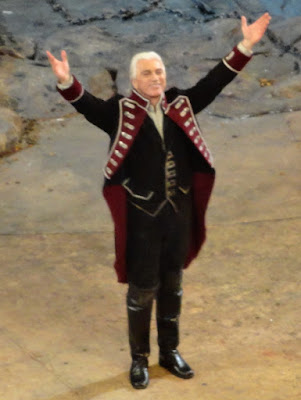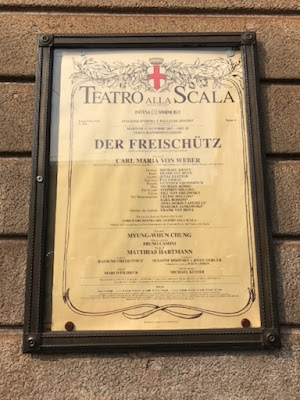(review in English below)
Assistiu-se há dias na Fundação Gulbenkian a um dos
momentos altos da presente temporada, o concerto do jovem contratenor argentino
Franco Fagioli e da orquestra Il pomo d’oro.
O programa
incluiu exclusivamente trechos de G. F.
Händel. A selecção de árias foi muito boa e pôs em evidência as
extraordinárias capacidades vocais do cantor. Tem uma voz de enorme amplitude,
invulgar beleza, muito expressiva e sempre perfeitamente colocada. A técnica é
primorosa.
Tudo o que se
ouviu foi fantástico. Alguns exemplos incluíram as várias árias de bravura em
que o cantor mostrou todo o esplendor da sua técnica vocal (Venti, turbini da ópera Rinaldo, Se bramate d’amar e Crude
furie ambas da ópera Serse).
A aria Si in fiorito ameno prato da ópera Giulio Cesare in Egitto foi outro dos
momentos mais altos da noite, com o fabuloso e belíssimo diálogo entre o cantor
e o violino solista (também fantástica a violinista Zefira Valova).
Nas árias de lamento
foi de uma emotividade tocante em Cara
sposa da ópera Rinaldo e,
sobretudo, na ária Scherza infida, da
ópera Ariodante. Também no primeiro encore nos ofereceu talvez a mais sentida
interpretação que alguma vez ouvi da belíssima ária Ombra mai fù (da ópera Serse).
*****
Franco
Fagioli and Il pomo d'oro, Glubenkian Foundation, November 2017
A few days ago at the Gulbenkian Foundation in
Lisbon, one of the highlights of this season was the concert of the young
Argentinian countertenor Franco Fagioli
and the orchestra Il pomo d'oro.
The program
included only extracts from G. F. Händel.
The selection of arias was very good and highlighted the extraordinary vocal
capabilities of the singer. He has a voice of enormous amplitude, unusual
beauty, very expressive and always perfectly tuned. The technique is exquisite.
Everything
we heard was fantastic. Some examples included the various arias of bravery in
which the singer showed all the splendor of his vocal technique (Venti, turbini of the opera Rinaldo, Se bramate d'amar and Crude furie both of the opera Serse).
The aria Si in fiorito ameno prato from the opera
Giulio Cesare in Egitto was another
of the top moments of the night, with the fabulous and beautiful dialogue
between the singer and the violin soloist (also fantastic the violinist Zefira Valova).
In the
arias of lament the singer was of touching emotion in Cara sposa of the opera Rinaldo
and, particularly, in the aria Scherza
infida, of the opera Ariodante.
Also in the first encore he offered us perhaps the most heartfelt
interpretation I have ever heard of the beautiful aria Ombra mai fù (of the opera Serse).
It was a privilege to attend this concert.
*****





























